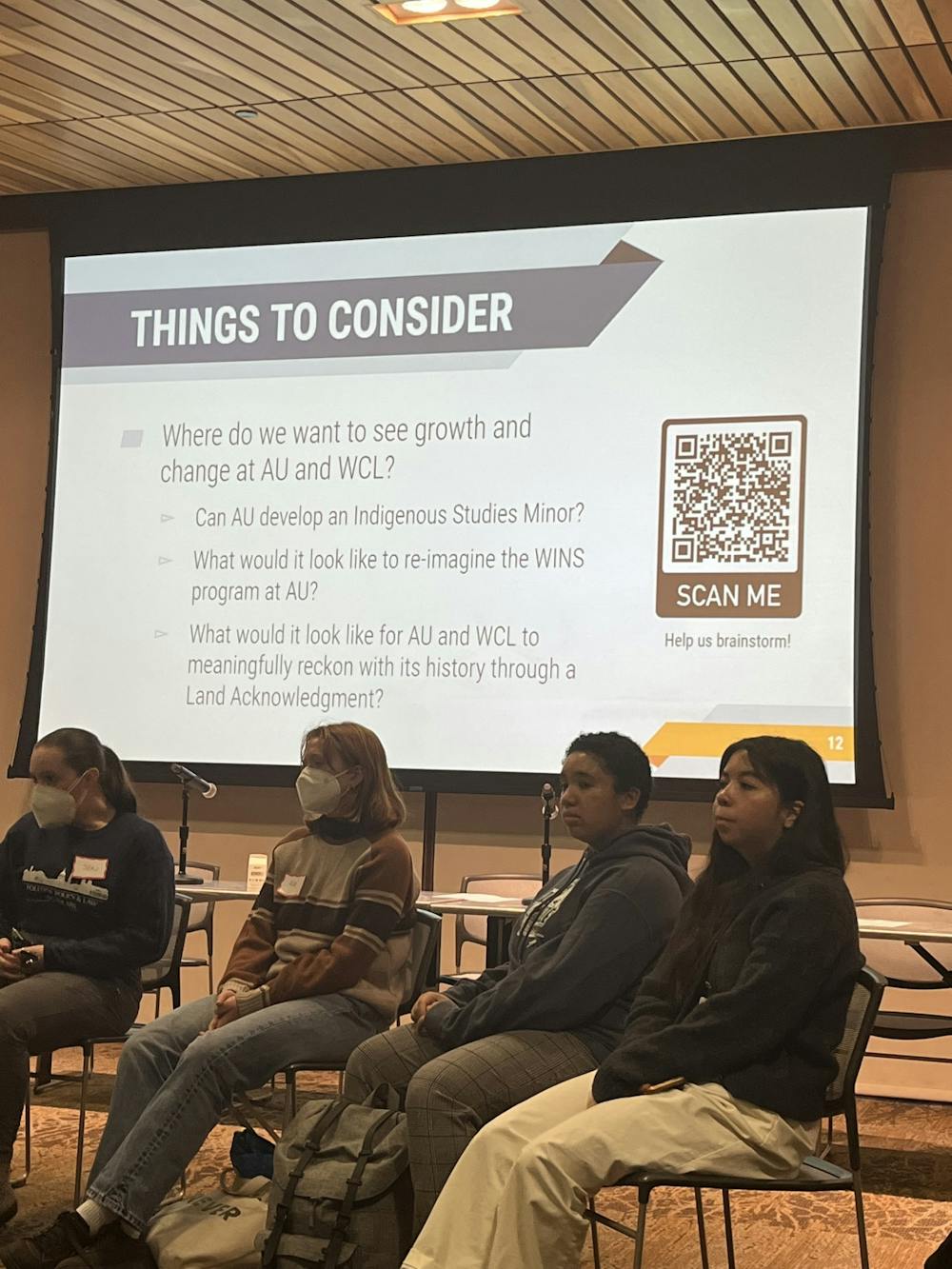American University held a summit on Nov. 15 on fostering Indigenous spaces, where students and faculty discussed critical questions of indigeneity and education.
The summit was part of the University's Inclusive Excellence Plan and the discussion and action-planning session revolved around three themes: curriculum development on Indigenous topics, campus resources available to AU’s Indigenous community and a historical reckoning with AU’s Indigenous history. Seeking to open a dialogue, the summit evaluated how AU and the Washington College of Law have created inclusive spaces for Native students and how these institutions can improve.
Assistant Vice President of Diversity, Equity and Inclusion Amanda Taylor said the idea for the summit was inspired by questions from students and staff about what AU’s policy was on land acknowledgements.
“Last year about this time, there were several different groups who were all asking about land acknowledgements at AU, so I said let’s all come together to start talking,” Taylor said. “The conversation expanded out beyond land acknowledgements to say basically what are the conversations that we need to be having more broadly around Indigeneity at AU.”
Taylor said the summit was an opportunity to connect with the larger AU community on these topics, describing the event as “a way to start that conversation.”
Launched in 2017, the Plan for Inclusive Excellence is a multi-step process to work towards a more equitable future at AU. The project aims to incorporate diversity into the University’s organizational structure to support all members of the diverse AU community, something Taylor said was aligned with the intentions of the summit.
“One of the main things we wanted to do is build community,” she said. “[The summit] was also an opportunity to assess our history around these things and get a sense of what is the current state of how AU is approaching creating Indigenous spaces … What’s currently happening, what needs to happen, where are we falling short?”
Among the ideas discussed at the event, students and faculty called for AU to develop an Indigenous studies minor and reinstate the Washington Internship for Native Students, a D.C. program that was discontinued due to lack of funding. according to?
In addition to engaging in dialogue, participants listened to panelists such as Olivia Olson, the director and co-creator of the Indigenous Initiative and a junior in the School of International Service. Olson, who is Indigenous, said the club aspires to create a safe space for Indigenous students, something she said she has struggled to find during her time at AU.
“Being invited to this conference, I was really interested in voicing my experience … and reflecting on how a coalition is being built and there is progress but also bringing awareness to what still needs to be done,” Olson said.
Olson added that this event represents the beginning of a long process of building a more inclusive environment for Indigenous students and studies.
“It’s only the starting point,” she said. “We’re not done but I’m happy with the turnout. I’m happy to see students interested in these topics and faculty taking interest, as well.”
Emily Bass, a senior in the School of Public Affairs who has studied and worked on Indigenous issues since freshman year, also spoke as a panelist. She added that although students and faculty uniting on this topic is a vital step, she wants more changes to school policy.
“I would love to see an Indigenous studies minor,” Bass said. “I think that is a great step towards building institutional support, as well as support for campus organizations like the Indigenous Initiative and [the Native American Law Students Association] and hopefully bringing more speakers to campus so people who aren’t involved in these issues have the opportunity to hear about them.”
Looking to the future, Taylor said that preparation for another event — this time in the form of a roundtable discussion — is already underway for the spring.
“We will have some convening in the spring where we’ll build on what we did in the fall but it’s going to be more forward looking and action oriented where we start to take some of the ideas that were put forward here and … put those together into some sort of proposal,” Taylor said.





